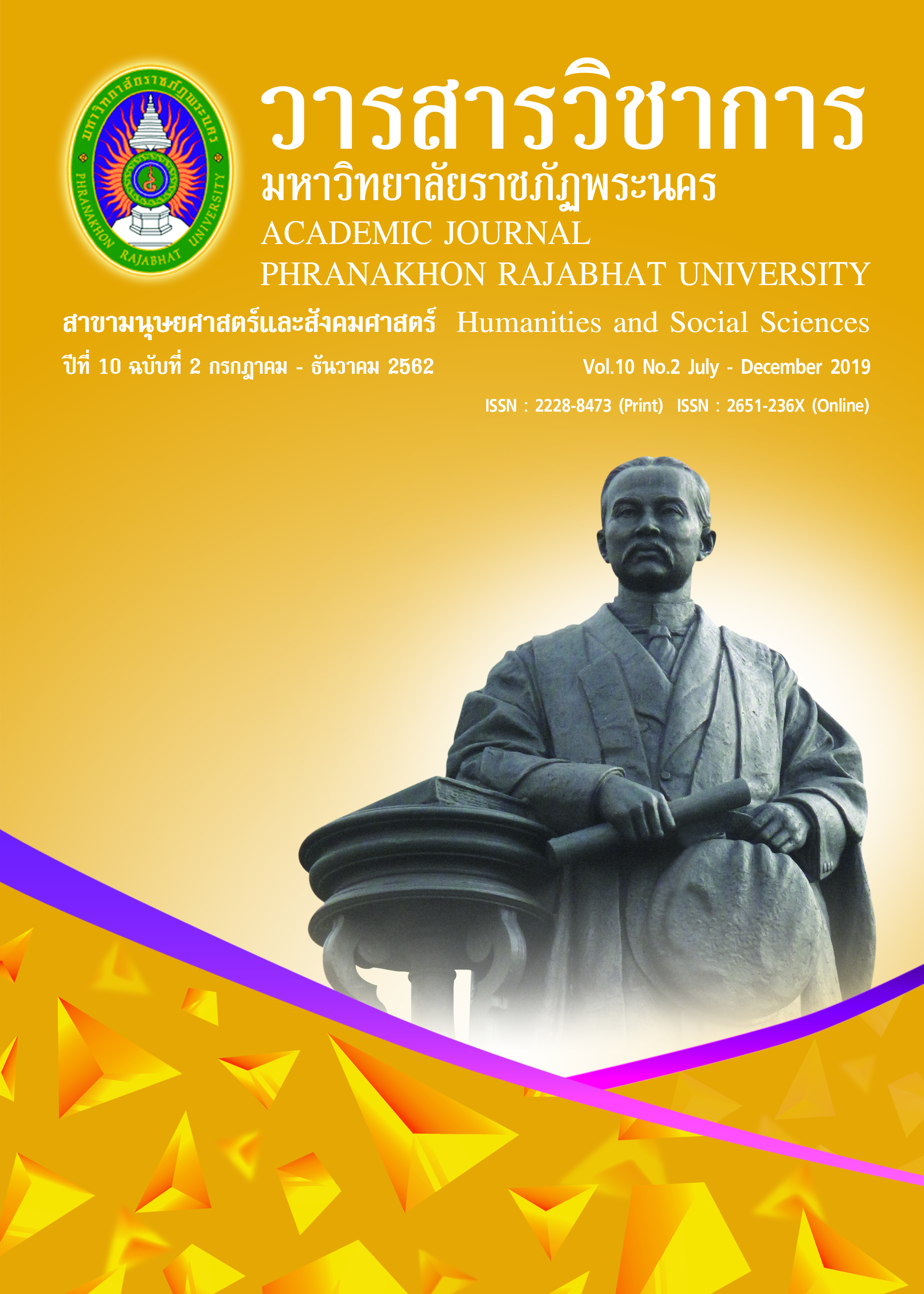FACTORS DETERMINING IN THE AVERAGE WAGE IN THAILAND
Keywords:
determining factors in the average wage in Thailand, average wage in Thailand, time seriesAbstract
In this research inquiry, the researchers study factors determining the average wage in the Kingdom of Thailand (Thailand). Relevant quarterly time series data from the second quarter of 2001 to the first quarter of 2017 were collected and subsequently analyzed. On the one hand, utilizing the ordinary least squares (OLS) method, the researcher predicted the average wage from the second quarter of 2017 to the first quarter of 2018. On the other hand, employing the classic time series method, the average wage in Thailand was also predicted for the second quarter of 2017 to the first quarter of 2019. Finding showed that determining factors for the average wage were the quantity of foreign tourists traveling to Thailand (T), the quantity of unskilled laborers (UNlabor), the gross domestic product (GDP), and the quantity of laborers in business units (LB). It was found that from the first quarter of 2003 to the first quarter of 2017 that the wage rate directly correlated with T and GDP and inversely correlated with UNlabor and LB Furthermore, the average wage was predicted to increase. In the near future, the average wage was predicted to increase 500 baht per day or 15,000 baht per month.
References
Bank of Thailand. (2017). Number of employed persons classified by work status. Retrieved December 20, 2017, from https://www.bot.or.th/statistic/BOTWEBSTAT. aspx?4reportID=627&language=TH (in Thai)
Bank of Thailand. (2017). Tourism Indicators. Retrieved December 25, 2017, from https://www.bot. or.th/App/BTWS_STAT/statistics/BOTWEBSTAT.aspx?reportID=624&language=TH (in Thai)
Dickey, D. and W. Fuller. (1981). Likel ihood ratio statistics for autoregressive time series with a unit root. Econometrica, 49(4), 1057-1072. doi: 10.2307/1912517
Labour Market Information Administration Dirision. (2017). Labour Market Situation in 2017. Bangkok : Department of Employment. (in Thai)
Ministry of Industry. (2011). Minimum wage for working capital. Investment Promotion Journal. 22(9). 11-17. (in Thai)
Office of the National Economic and Social Development Council. (2017). All tables QGDP. Retrieved December 15, 2017, from https://social.nesdb.go.th/SocialStat/ StatReport_Final aspx reportid=3456&template=2R2C&yeartype=M&subcatid=7 (in Thai)
Office of the National Economic and Social Development Council. (2017). Information on job vacancies. Retrieved December 15, 2017, from https://social.nesdb.go.th/SocialStat/ StatReport_Final aspx?reportid=3456&template=2R2C&yeartype=M&subcatid=7 (in Thai)
Untong, A. (2003). Handbook for Eviews Program to analyze unit root, cointegration and error correction model (according to Engle and Granger method). Retrieved November 4, 2016, from https://piboonrungroj.files.wordpress.com/2011/08/akarapong_handbook_eviews_unit_root_conintegration_error_correction.pdf (in Thai)
Downloads
Published
How to Cite
Issue
Section
License
"บทความวิชาการในวารสารฉบับนี้ ถือเป็นความรับผิดชอบของผู้เขียนเท่านั้น"
สงวนลิขสิทธิ์ตามพระราชบัญญัติลิขสิทธิ์




